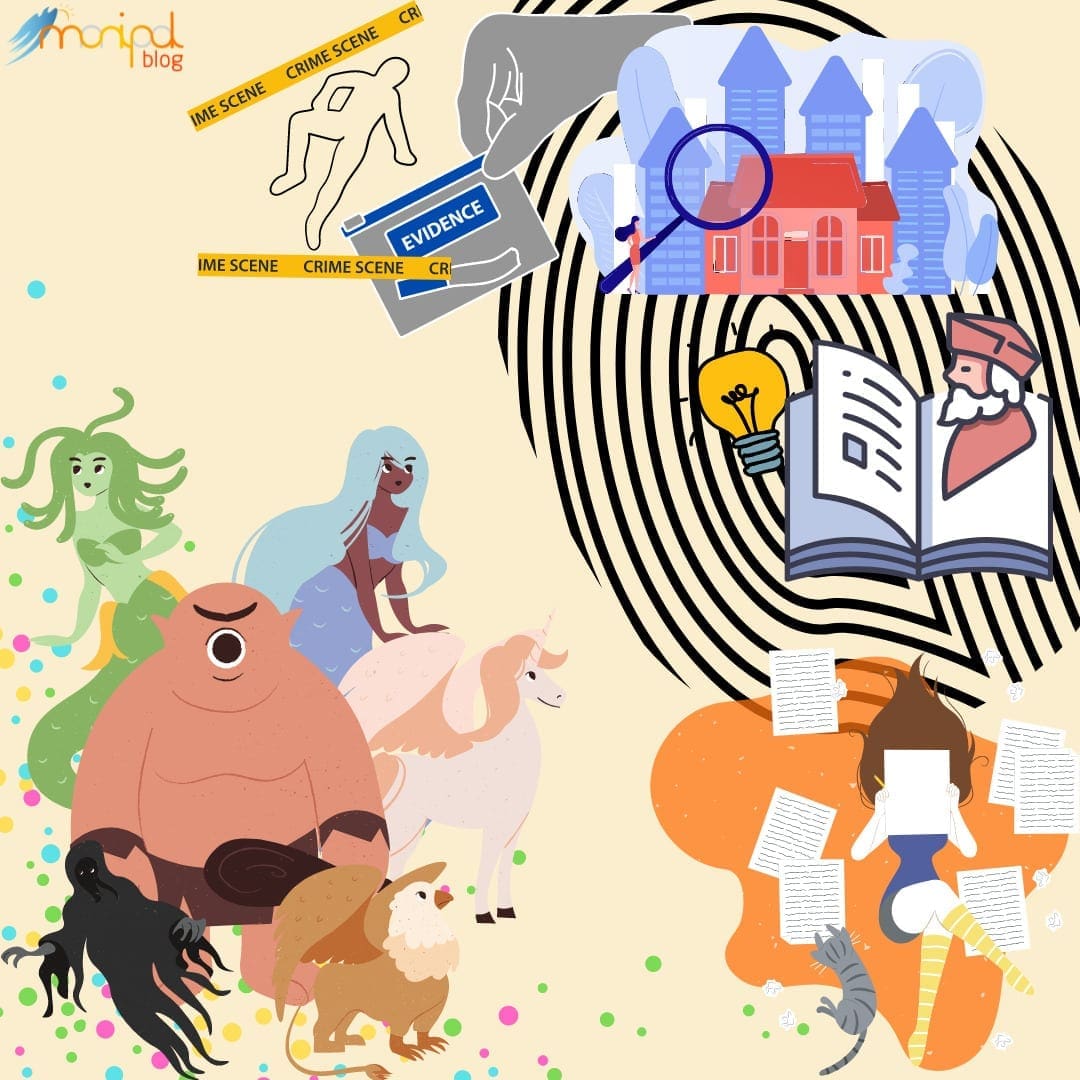
Are you an avid reader? Or are you someone who’s trying to build the habit of reading? Whether you’re the former or the latter, you definitely must have encountered these two broad categories while browsing through a library: fiction and non-fiction.
Defining fiction and non-fiction for starters
Literature is primarily divided into fiction and non-fiction, which in turn constitute a whole host of formats, types, and genres.
- Fiction is a category of literature that is the product of the writer’s creativity and imagination. Fiction genres comprise classics, romance, mystery, thriller, science fiction, fantasy, paranormal, horror, chick-lit, poetry, young adult, etc.
- Non-fiction is a category of literature that involves factual stories based on actual events and people. Non-fiction genres encompass biography, memoir, business, science, self-help, cookbooks, philosophy, travel, history, religion, art, music, humor, etc.
Now that you know what generally constitutes fiction and non-fiction, here’s the catch: it’s sometimes hard to tell the difference between both. Fiction and non-fiction can overlap from time to time. Fiction can use fact, and non-fiction can use imagination. That doesn’t necessarily mean that a fictional story is purely based on fantasy. Neither does non-fiction prose have to be totally dull and unimaginative.
Blurring the lines between fiction and non-fiction.
To make the writings more appealing, non-fiction utilizes several techniques of fiction these days. For example, In Cold Blood by Truman Capote is extensively considered one of the best works of non-fiction as it substantially distorts the line between fiction and non-fiction. However, Capote’s work has been questioned for its authenticity.
Moreover, in recent years, the clear distinction between fiction and non-fiction has been blurred. For instance, novelists (who primarily write fiction) have crafted stories based on real-life events and characters (non-fiction). Whereas historians (who mainly write non-fiction) have incorporated imagined dialogue (fiction) to imply the thoughts and musings of historical figures.
As fiction is fabricated, novels, myths, fairy tales, legends, and short stories are deemed fiction. However, writers in fiction often devise plot points, characters, and settings based on real-life events or people. Furthermore, fantasy and science fiction novels situated in imaginary worlds are frequently inspired by the real world.
The evolution of creative non-fiction.
Photo by Shiromani KantA genre that perfectly blended elements of fiction and non-fiction came to be known as creative non-fiction. This genre makes use of the techniques of fiction to report on actual events. The creator of Creative Nonfiction magazine, Lee Gutkind, says the term:
“Refers to the use of literary craft, the techniques fiction writers, playwrights, and poets employ to present nonfiction—factually accurate prose about real people and events—in a compelling, vivid, dramatic manner. The goal is to make nonfiction stories read like fiction so that your readers are as enthralled by fact as they are by fantasy.”
Choosing that perfect read from an endless selection of books.
Have you frequently wondered what to pick amongst a variety of genres lying in front of you? Been there, done that. If you’re utterly confused about what book to choose, then trace back to the start, where we discussed two vast categories of fiction and non-fiction.
If you choose fiction, follow these steps:
- Select the format of fiction you’d most likely prefer. Is it a novel, novella, or short story? There are several other formats to desire from the ones mentioned here.
- After choosing the format, opt for the genre you’re fascinated to read about.
If you choose non-fiction, follow these steps:
- Select the type of non-fiction you want to read. Is it a biography, memoir, essay, journal, newspaper, or magazine? There is a wide range of other types to pick from the ones mentioned here.
- After choosing the type, select the genre you’re interested in.
There are various websites to look out for to enhance your reading experience. Here are some to find your next best read:
- Goodreads
- Project Gutenberg
- Internet Archive
- Open Library
- Google Books
- Literary Hub
- Book Riot
- Wattpad
Which side emerges as the winner in the end?
Photo by Clem OnojeghuoUsually, non-fiction has a higher standard to uphold than fiction. In fact, it happens to be the most expansive category of literature. A few bits of reality in a work of fiction don’t make it accurate. In contrast, a few fabrications in a non-fiction work can force that story to lose all credibility. Although it’s hard sometimes to differentiate between fiction and nonfiction, always remember this: “If it reports the truth, it’s nonfiction. If it stretches the truth, it’s fiction.”
Which is better out of the two? That is for you to decide.


Be the first to comment